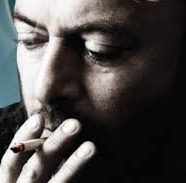“Hitch 22” by Christopher Hitchens
The late Christopher Hitchens’ memoirs “Hitch 22” is a beast of a read. It’s possibly the densest forest of references and allusions I’ve ever encountered. Keeping even a modicum of composure while sliding down that jungle mud path, hacking not infrequently at vegetation to facilitate one’s progress, is quite a challenge. Th vocabulary alone is voluminous. It’s best to read it on kindle since you will need the dictionary often, that is if you are interested to know quite what he’s saying. My vocabulary builder has almost 500 words now and I would confidently assert that a full half of the entries derive from Hitchens. Words like “boondocks,” “caudillo,” “rebarbative,” “regnant” and “dreck” all make an appearance. Many of them are from French and can no doubt be dropped into conversation to impress interlocutors: “soi-disant,” “demi-monde,” “aperçus,” “embarras de choix” could each one day be just the “mot juste” you were looking for.
No doubt Hitchens is a challenge, a rewarding one. His life was hectic and his energy for ideas and debate was extraordinary. He went far and wide to explore the issues of his day and was as close to fearless as any writer can reasonably be expected to be. He seems to have had a deep suspicion of, if not outright dislike for, Nixon, Reagan and Clinton. And, now that I think of it, he suffered an early trauma like so many other authors: his mother left his father and ended up taking her own life. He drank a lot and smoked too. He was excessive in so much, his perceptiveness in particular. He remembers his father saving a little girl in a pool and her father’s “undisguised rage and hatred” at having had his neglect broadcast.
His affection for other writers is palpable, Martin Amis in particular: “there was no doubt that you would always know when he had come into the room.” Amis sent him a “well-phrased, memorable note of condolence” after his mother’s death.
Hitchens can be quintessentially English: “It suddenly seemed to me that Martin’s sister Sally did not perhaps find me entirely repulsive.” The modesty, even self-deprecation here is due probably to his open admiration for her brother with whom Hitchens claimed to have had “the most heterosexual relationship that one young man could conceivably have with another.”
Hitchens lived the life of a proper writer: outspoken, passionate, angry, perceptive, loyal, hard-working and maybe most importantly, critical in the best sense of the word. His “Hitch 22” is about as close as you’re likely to come to knowing him and he was and is worth knowing. Who could ask for more in death?
R.H.






